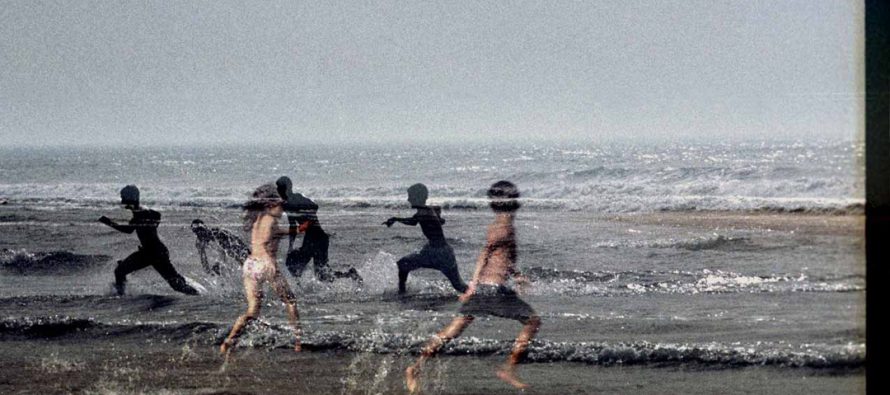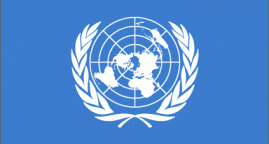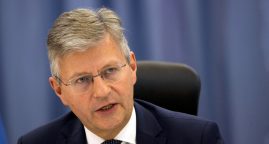Call for new solidarity in the Mediterranean and Euro-Arab world

Several politicians have held important positions in European countries and the Mediterranean Basin – including former Italian prime minister Enrico Letta – publish a call for the Euro-Mediterranean solidarity at a time when conflicts are undermining it historical link.
Buoyed by the Foundation for the Promotion of the Mediterranean Dialogue and Euro-Arab (FDMEA) this call is a preamble to the drafting of a white paper with writing will be divided into 4 phases:
September 2015 – April 2016: With the support of the Global Studies Institute (GSI) of the University of Geneva, an initial feasibility study on the advisability of such a White Paper is in the process of publication. Workshops have been organized in various Arab countries and discussions undertaken in numerous capitals to sound out the civil society actors likely to participate subsequently in the implementation of a White Paper.
2.May 2016 – June 2016: On the basis of this preparatory study the FDMEA, working closely with the GSI, will set up a forum to cooperate with all the entities and institutions who wish to be associated with this undertaking and make their own contribution. At the same time, together with all the members of the forum, the FDMEA will set up an international commission composed of Arab and European personalities (pilot committee), whose task will be to supervise the work of the secretariat responsible for drawing up the White Paper. The GSI of the University of Geneva will assume responsibility for the White Paper secretariat.
3.July 2016 – December 2017: The drafting of the “Civil society’s White Paper on Euro-Arab cooperation” will be carried out over a period of eighteen months. The White Paper’s purpose will be to identify all the sensibilities present in the Euro-Arab area, in particular to draw together the aspirations of the various peoples, and thus provide the impetus necessary to open up new perspectives of Euro-Arab cooperation.
4.January 2018 – December 2019: Based on the points and proposals contained in the White Paper, the FMEAD, in partnership with all the other members of the forum, intends to make all the useful contributions required to promote peace, stability and cooperation in the Euro-Arab zone, including, if appropriate, by means of a “Conference on Cooperation and Security between Europe and the Arab Countries(CSCEA)”.
Call for new solidarity in the Mediterranean and Euro-Arab world
« Mare nostrum » is how the Romans envisaged the Mediterranean. It was a major foreign policy objective for the empire that formed around this inner sea. And so it remained over the last two thousand years through the conflicts that set peoples fighting each other to attain control over it.
Today, some take advantage of these secular tensions to fuel the idea of a Europe under siege, a privileged space far from the turmoils that shake the planet, and in particular the Arab countries.
In this context the Mediterranean ceases to be a link and is transformed into a frontier. By resuscitating the antagonisms that Europe experienced with the wars of religion, the advocates of Europe’s withdrawal into itself are aiming at the conquest of power at the risk of destroying the capital of mutual understanding, the veritable foundation of the democratic and institutional values that contributed to Europe’s success.
This approach must be resisted relentlessly by all components of European society, conscious that its future depends, on the contrary, on its capacity to convince its partners of its social and political values.
This vision must be discarded with the same determination in the Arab counties, which cannot allow a dogmatic conflict to destroy their hopes of emancipation.
Twelve reasons that argue for the setting-up of a cooperation are:
The first is based on the common heritage of the peoples who draw their roots from shared cultural, political, social and religious values.
The second lies in the evident fact that cooperation is always more favourable to the well-being of peoples than confrontation.
The third reason is to provide a concret answer to Europe after the Arab Spring, the outburst of violence in both Europe and the Arab world, and the drama and suffering of hundreds of thousands of refugees. The answer should take into account the aspirations and expectations of civil societies (bottom-up approach) in order to go beyond past failures in Euro-Arab cooperation.
The fourth is the evident demographic complementarity of the two regions, with on the one hand a Europe that is ageing but has achieved successes and development, and on the other hand Arab countries with a young population that aspires to a better quality of life.
The fifth is economic, with a region to the south and east of the Mediterranean with a limited potential for growth due to restricted economic and agricultural capacities and insufficient water resources, which can therefore pursue its development in the framework of active cooperation with Europe contributing its technical and financial assistance. Conversely, Europe is dependent on its energy supply, and a reasoned partnership for supply of fossil fuels and the development of renewable energies would be mutually beneficial.
The sixth is commercial, with one region rich in raw materials but without industrialisation and the other rich in technological capacity but lacking mineral resources.
The seventh is financial, due to the social costs that are simply unacceptable for European and Arab citizens who are called upon, in fine, to support budget deficits at the expense of their aspirations for better education and quality of life.
The eighth is environmental, with the need to ensure the best possible management of the resources that are indispensable for the development of the two regions, especially with respect to energy, hydraulics, climate and tourism.
The ninth is cultural, in that the perception of the Other and the sharing of common values can only be realised in the context of a constantly renewed cultural dialogue. This is the condition for a new relationship in which the other party should no longer be regarded as a foreigner condemned to take a back seat in order to integrate.
The tenth is political, with the conviction that the Israeli-Palestinian conflict resulting from the creation of Israel in the aftermath of the Second World War without the consent of the Arab world can only find a solution in the framework of a Euro-Arab relation engaged in a dynamic cooperation that serves the interests of all citizens – Israeli, Palestinian, Arab and European.
The eleventh is security-related, with the evidence that no dispute can be won solely through military engagement, and that without negotiation, peace is just a set of principles.
Finally, the twelfth is that today’s communication technologies enable citizens and civil societies to establish a direct and permanent dialogue that can replace the postures of governments that are not always in tune with the aspirations of their citizens.
Twelve reasons to cooperate, which represent as many challenges that we are determined to take up if we wish to avoid descending into different forms of terror likely to definitively destroy the political space and undermine the democratic institutions. For the Europeans, this is the best chance of preserving and promoting the values that are dear to them and remain perceived as a model. For the Arab world, it is the opportunity to revive a dialogue in which its particularities have never really been addressed, and even less taken into consideration.
Our approach implies a host of imperatives that call on us to reconcile solidarity, diversity and plurality, to combine the universal with the singular, and to free ourselves from the burden of traditions held up as dogmas.
It is in this spirit that we appeal for a vast consultation process with all populations of the Mediterranean and Euro-Arab world through the launch of a « White Paper » which would constitute the first building block in a wide-ranging negotiation process aiming at the establishment of an area of cooperation and security in Euro-Arab relations. It is the hope that reason will triumph over the risk of disintegration that may well be irreparable.
This call was signed by :
- Miguel Àngel Moratinos, former Spanish Minister of Foreign Affairs
- Enrico Letta, former Italian Prime Minister
- Günter Gloser, Former German Minister of State for Europe. He is the SPD-rapporteur for the Middle East in the Bundestag’s Foreign Affairs Committee
- Fares Boueiz, ancien Ministre libanais des Affaires étrangères
- Carlo Sommaruga, National Councillor (PS / GE) and former chairman of the Foreign Affairs Committee
- Andrey Azoulay, Councillor Mohammed VI, King of Morocco
- Amr Mahmoud Moussa, Former Egyptian Foreign Minister
- Ahmedou Ould-Abdellah, Former Mauritanian Minister of Foreign Affairs
- Alain Clerc, Founding President of the Foundation for the Promotion of Mediterranean and Euro-Arab dialogue (FDMEA)
Related Articles
“The lack of global leadership makes very dangerous the situation”
12/05/2015. Discover the vision of Thierry de MontbriaL on geo-political perspectives of the international scene.
Italy: Migration and Libya in the focus
03/18/2015. During a press conference in Rome, the Secretary General of the United Nations was concerned by the situation in Libya.
INTERVIEW: ‘Our peacekeepers are saving lives every day’ – new UN peacekeeping chief
05/22/2015. More than 3,500 peacekeepers who have lost their lives in the service of peace since UN deployments began in 1948.






